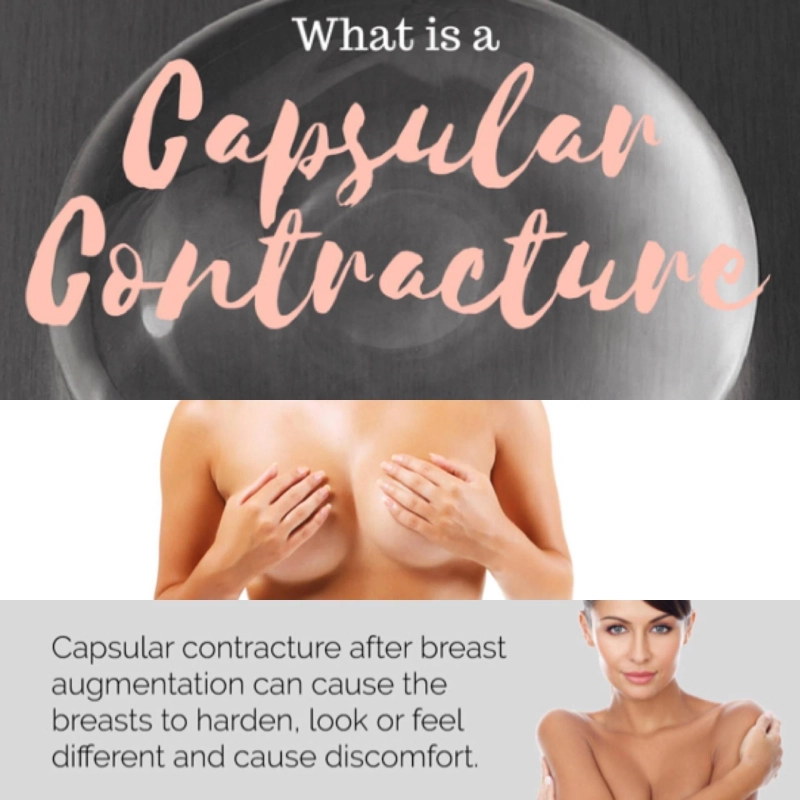Breast augmentation is a popular cosmetic procedure. However, a complication that can occur with any breast implant is called breast implant capsular contracture, which affects the shape, feel, and appearance of the breast. Knowing the causes, risks, and solutions may assist you in making informed decisions and getting the appropriate treatment.
In this article, we will explore the causes, symptoms, and treatment methods of capsular contracture, and also explore the prevention tips.
What is Breast Implant Capsular Contracture?
Breast implant capsular contracture occurs when scar tissue grows around the implant, a normal process in which the body covers the implant. The capsule gets firm and tight due to various causes. Breast discomfort, pain, and changes in appearance can result from capsular contracture.
Capsular contracture is one of the most common complications associated with breast implants and can occur shortly after surgery, months later, or years later.
Causes for Capsular Contracture
There are a variety of reasons why capsular contracture can occur. Though the precise cause is not always known, some common factors include:
● Bacterial contamination during surgery
● Hematoma, or a collection of fluid around the implant
● Smoking, or poor healing
● The use of textured implants
● Rupture or leakage
Who is at Risk?
Capsular contracture breast implants are more common among some women. Risk factors for capsular contracture breast implants are:
● A personal history of autoimmune diseases
● Smoking or other unhealthy habits
● Having radiation therapy after breast cancer surgery
● Prior infections or complications
● Genetic factors or how the body responds to foreign material
Before proceeding with breast augmentation, discuss your risks with your surgeon.
Signs and Symptoms of Breast Implant Capsular Contracture
This can be mild to severe. Look for:
- A firm or tight feeling in the breast
- Pain or tenderness
- Rounding or shapes that look different or out of position
- Hard lumps, asymmetry
- The breast looks smaller or misshapen
Diagnosis and Grading
Physicians utilize the Baker classification system to determine the degree of severity:
● Grade I: Breast feels soft and has a normal appearance
● Grade II: Breast has slight firmness but normal appearance
● Grade III: Breast has firmness and an abnormal appearance
● Grade IV: The breast shape is changed, painful, and firm.
The higher the grade, the greater the likelihood that treatment for breast capsular contracture is needed.
Breast Capsular Contracture Treatment Options
There is a range of breast capsular contracture treatment options, depending on the severity:
1. Massage and Medications
● Can be helpful in early or mild cases
● Doctors will commonly prescribed anti-inflammatories for the patient
2. Capsulectomy
● Removal of the scar tissue around the implant
● Can be completed with an implant replacement or exchange
3. Capsulotomy
● Cutting the capsule to relieve pressure
● Less invasive than a total/complete removal
4. En Bloc Removal
● Complete removal of both the implant and capsule
● Recommended in severe cases or cases that keep recurring.
Tips for Prevention
While not every case of pain may be able to be prevented, there are ways to decrease your chances of experiencing pain:
● Consult with an experienced surgeon
● Follow post-operative care instructions exactly
● Do not smoke during healing time
● If appropriate, use implants with a smooth surface
● Keep your follow-up appointments to check the health of your implants
Maintaining a healthy lifestyle and being aware of any changes can also be useful in aiding early detection.
Dealing With Capsular Contracture
If you are experiencing capsular contracture with your breast implants, be familiar with the diagnosis and consult with your doctor. Some women who are diagnosed with mild capsular contracture may not necessarily need treatment at the time. Others will opt for surgery not only for better appearance but also for comfort.
Letting others who have experienced similar situations support you emotionally can be beneficial, too.
Conclusion
Capsular contracture of breast implants can be managed. A good understanding of the aspects that contributed to their development should facilitate effective management of your implants. The earlier the treatment starts, the easier it may be to avoid complications and deliver a better outcome.
Selecting the appropriate treatment for breast implant capsular contracture is crucial to avoid unnecessary pain and discomfort, and is vital psychologically for recovery and long-term satisfaction. For the best treatment or consultation, choose Aspenaftersurgery. Their experienced surgeon will help you to treat your problem, whether it is normal or mild.



